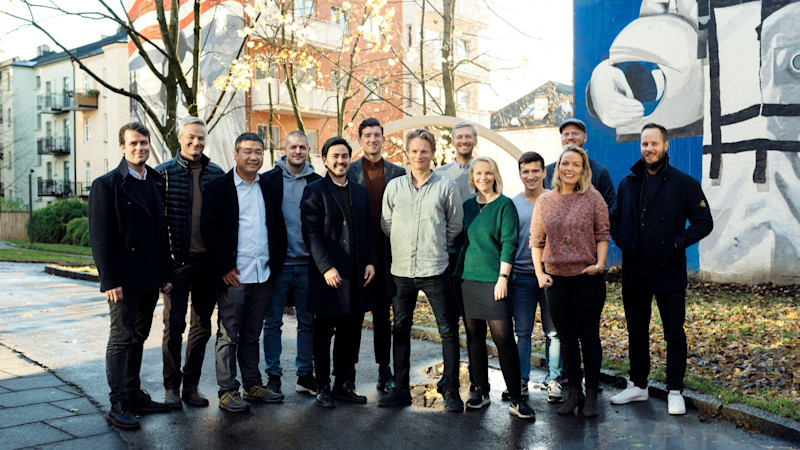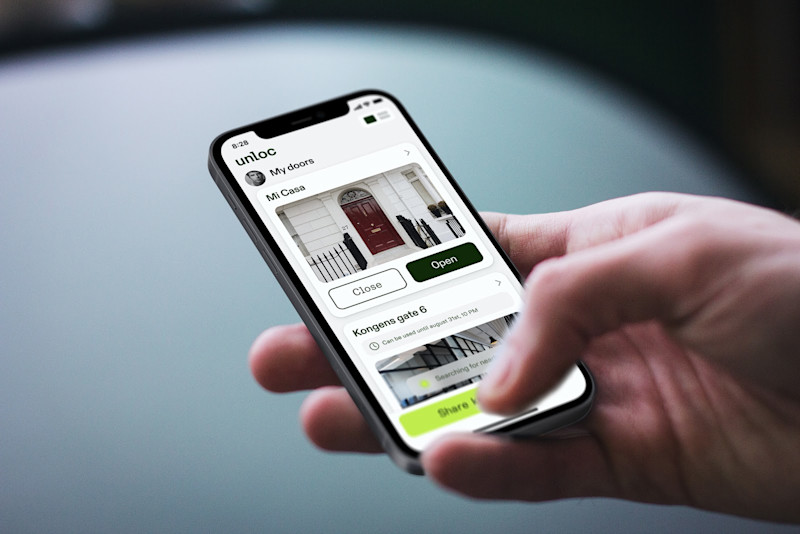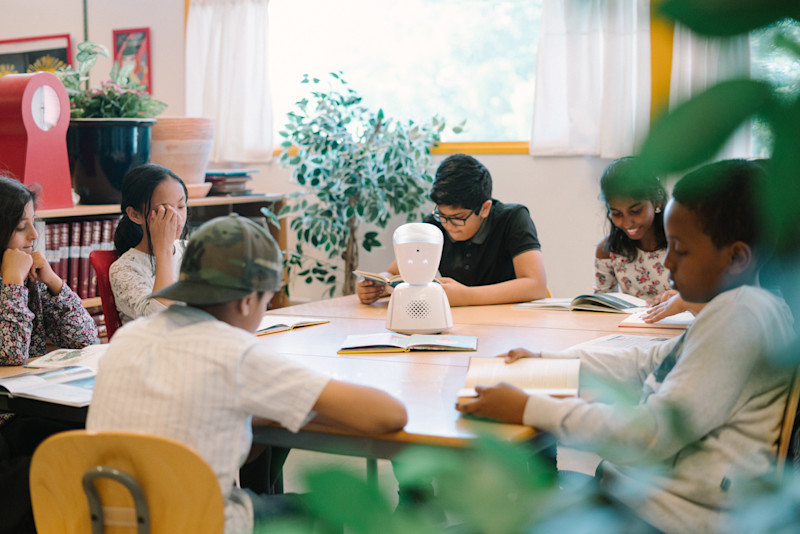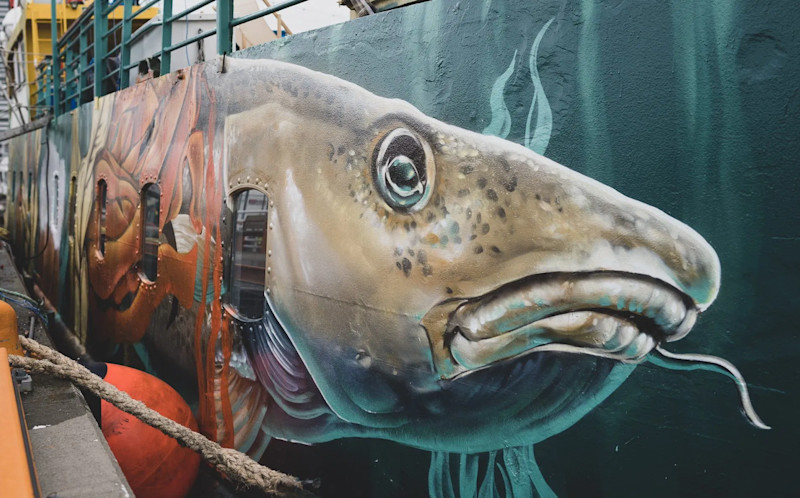- Iterate
- Meet The Team
- Eight Norwegian Startup Teams to Watch in 2021
Eight Norwegian Startup Teams to Watch in 2021
Table of contents
Norway might be more known for its fjords, salmon, and sovereign wealth fund than it is for its startup ecosystem. And while it has taken the entrepreneurial spirit some time to find its footing in this mountainous country, the Norwegian startup ecosystem is now moving from burgeoning to booming.

NyBy
NyBy frees up valuable time for health and care professionals by connecting people. Through its resource collaboration platform, healthcare staff can ask for help directly from qualified citizens and volunteers who want to support the most vulnerable - making it easy to contribute with practical help, errands, social needs or trips to the doctor.
With an aging population and a scarcity of healthcare workers, Norway - and indeed most of Europe - is facing a looming care-crisis. A fact that has been given increased attention and urgency during this pandemic.
“We believe that this kind of resource collaboration, to include what are idle resources today into care, will be a very important part of how we run care in the future,” said Fredrik Gulowsen, founder and CEO of NyBy. “We have built lots of know-how on this now in Scandinavia, and we think we will be an important player in the next years in Europe as well.”
After four years of in-depth research and development, NyBy soft-launched its solution in 2019 and went commercial earlier this year. Currently a team of 15 and operating in Norway, Sweden, Denmark, and Germany, the company has partnered with over 50 local governments and health organisations.
Working with a vast variety of stakeholders including politicians, nurses, labor unions and unemployment offices, NyBy has focused on building an experienced team with backgrounds from many different fields.
“It’s a complex learning game that we are on, and most of our team have 5 to 10 years experience from what they do,” Gulowsen said. “And with experience comes far more filters on how to work, we can be far more accurate, but people also have families and work-life balance is more important.”
Empathy and the ability to collaborate across a variety of sectors are important qualities of NyBy, who are in the process of expanding their mission-driven team.
“I think diversity is crucial when it comes to building culture,” said Gulowsen. “It’s important to have different ways of thinking and to have a comprehensive understanding of society, if we want to innovate for good.”

Tibber
As one of the world’s first digital energy companies, Tibber is on a mission to help people reduce their electricity consumption - and their energy bills. Since its founding in 2016, the startup has helped over 100K customers do just that.
Through smart technology integrations and a mobile app, Tibber provides its customers with complete insight into and power over their energy usage. The startup only sells locally produced renewable energy and has developed a digital platform able to buy the cheapest available electricity at any point during the day.
Currently operating in Norway, Sweden and Germany, the digital energy company wants to reduce the electricity consumption of European households by 20%. To achieve this, and fully align their goals with their customers’, Tibber realized it was high time to reinvent the long-standing business model of the energy industry. Traditionally, energy companies earn money based on the amount of electricity people use, effectively incentivising them to sell more energy to make more profit. Convinced that lowered energy consumption is better for both the planet and its customers, Tibber has vowed never to make a profit out of selling energy. Instead, the company takes a flat monthly fee (around €3.5), and charges for the electricity used without any markups.
With backing from big-name investors such as Founders Fund, Balderton Capital, and Eight Roads Ventures, Tibber closed a $65M Series B funding round in 2020. With over 60 team members located across four offices in Berlin, Førde, Helsinki, and Stockholm, Tibber plans to hire as many as 300 additional team members in the next two years to ionise their growth.
SafetyWing
In this global and digitally connected age, many people are finding new ways to live and work undetached from their home country.
Operating in the growing field of insurtech, SafetyWing provides insurance cover to remote workforces - or digital nomads - through its Nomad Insurance and Remote Health products. Soon, they will be launching a telehealth product called Remote Doctor. SafetyWing’s offerings all feed into the startup’s mission of replicating the Norwegian social safety net globally.
“When we look for people to help us build a global social safety net, I think the most important things we have looked for are people who are authentic and creative, and who want the same thing we do,” said Sondre Rasch, co-founder and CEO at SafetyWing. “We are working on something that does not exist yet, so in the beginning, we needed people who could think for themselves and were able to come up with solutions to problems nobody had solved before.”
Founded in 2017, the startup launched publicly in early 2020, fortuitous timing for what became a radical shift to remote working brought on by the pandemic. Earlier this year, the startup raised a $8M Series A round, led by Swedish VC Creandum with participation from byFounders and Rocketship, which added to its $3.5M Seed round in 2019.
The team of 35 is fully remote and works across three continents. The startup is expecting to double its headcount this year. To maintain a creative and inviting culture, three key building blocks - inspired by Karl Poppers’ theory of knowledge - are shared and discussed with each new hire: People make mistakes, improvements are always possible, and all problems are solvable.
“It is a very forgiving culture, where we focus on solving problems instead of preventing them, or assigning blame for them,” Rasch said. “It is also a humble culture where we always keep things open for improvements, even these principles. And lastly a culture of optimism, where we approach big ideas with the bold attitude that even this problem can be solved by us.”
ReMarkable
In a world full of distractions, where focus is becoming an increasingly scarce commodity, ReMarkable is on a mission to help people think better. Based on a love for paper - and technology - the team created one of the very first paper tablets. Made for reading, writing and sketching, the tablet looks and feels like paper and is free of any notifications to allow for the same focused thinking that a sheet of paper can provide.
Since the 2017 launch of ReMarkable1 - which turned out to be one of the most successful pre-order campaigns for a hardware startup in history - the ReMarkable team has grown from a handful of Norwegians to over 100 employees with operations spanning across Europe, Asia, Oceania and America.
To fuel growth and gear up for their next-generation tablet launch, the startup raised a $15M Series A round with Spark Capital in 2019. Last year saw the arrival of ReMarkable2, the world’s thinnest tablet, which has received praise from a long list of publications, including Time’s Best inventions of 2020 list.
Unloc
With the wish to make life easier for everyone with a front door, Unloc has built a digital keychain in the form of an app where people can safely store all their keys. The company makes sharing keys as simple as sending a text message - easily and safely giving access to the delivery person, cleaner, or a resident who forgot their key.
Founded in 2017, the now 33-person team already boasts an impressive roster of growth talent, including backgrounds from AirBnb, Facebook, Google, and Goldman.
“It's our culture and ways of working which has allowed us to attract and retain top talent from leading Fortune 500 companies,” said Marcus Hjelleset, interim Head of Growth at Unloc. “Building an awesome work culture has been made possible for us with a diverse team of people from incredibly different backgrounds, but who are aligned around the same core values.”
At the startup’s core lies a focus on taking responsibility and valuing freedom and initiative.
“And when those core values are in place, we don't restrict how, when or where we work, as long as the outcome is awesome,” Hjelleset said. “It's important for us that Unlocers feel empowered and encouraged to voice their opinion and share even their wildest ideas.”
Unloc’s operations currently span Norway, Sweden, Denmark, and Benelux. The rapidly-growing team is backed by investors such as Axel Johnson and heavyweight industry partners OBOS and Schibsted. Currently gearing up their expansion from Scandinavia to Europe, the digital locksmiths have plans to go multi-continental by 2022.

No Isolation
As the pandemic has highlighted, social isolation and loneliness can have serious effects on both physical and mental health. Founded in 2015, No Isolation is on a mission to reduce involuntary loneliness and social isolation by developing communication tools that help those affected and by sharing knowledge.
With warm technology innovations Av1 and KOMP, No Isolation is helping two groups in society most exposed to loneliness - children and young adults with long-term illness, and those over the age of 80. The company’s first product, AV1, is a telepresence robot that acts as the child’s eyes, ears, and voice in the classroom that is currently helping 1,200 children and young adults across Europe. It’s second product, KOMP, is a one button communication device designed specifically for use by seniors. The device lets families share photos, messages, and video calls with their analog grandparents. To date, over 3,300 units have been sold and over 3 million moments from all over the world have been shared.
No Isolation’s innovations have received wide-spread acclaim, receiving its Seal of Excellence from the European Commission in 2016. The company has become a leading voice on the topic of loneliness, including publishing research on and working with governments to establish strategies to tackle loneliness.
Partnered with the Norwegian Cancer Society, the University of Oslo, Swedish-Finnish telecom company Telia, and several high-profile Norwegian hospitals, the company currently has a presence in the Nordics, UK, Germany, France and the Netherlands. The diverse team is based across Oslo, London and Munich.
"Everyone and anyone that joins No Isolation has to truly own our mission and vision. Most of our applicants can relate to our work before applying and one of the qualities we actively look for, in addition to experience and expertise, is kindness,” said Karen Dolva, co-founder and CEO of No Isolation. “I believe we all thrive and deliver better results if we are surrounded by people who want to see us succeed. So culture, and especially our way of cooperating, have been a core focus for me personally.”

Whereby
Based on the belief that it shouldn't matter where work happens, Whereby wants to give people the freedom to work and live wherever they thrive through easy video meetings.
The team itself is fully flexible and remote and is spread across 12 locations. The startup believes that the future of work will gravitate toward flexible and remote setups that allow for a good work-life-balance.
“We believe that talent is equally distributed across the world, while the opportunity to do your best work is not,” said Jessica Hayes, VP of People at Whereby. “It’s no longer about who speaks the loudest, it’s about work you do. To help that, we give everyone the opportunity to work where they want, as being able to work and live where you feel most happy and comfortable should in turn, positively impact work output.”
The journey of Whereby started in 2013 when the service was called appear.in - a summer intern project inside the Norwegian telecom company Telenor. Whereby spun out in 2017, finding a new home with Videonor - a family office located in the small township of Måløy on the western coast of Norway.
During the company’s first few years, most of its talent was sourced from Norway. However, in 2020, the team recognised a need to focus on diversifying their perspectives. At the end of 2020, the team had almost doubled in size, with team members from Indonesia, Canada, South Africa, the Netherlands, and more, and is still expanding.
“We still have a long way to go when it comes to diversifying and attracting talent,” said Hayes. “But we’re always looking for ways to make the process as open and appealing to everyone.”

TOOL - The Ocean Opportunity Lab
Founded in 2019, TOOL was built to nurture a safe, inclusive, and quality-focused ecosystem within which entrepreneurs in ocean industries and renewable energy will be able to thrive. The company’s comprehensive business model consists of five interlinked projects and services, and is built after the inspiration of how the coral reefs function.
"If you look at how the reefs are functioning, you see that they are providing a safe environment and all the nutrition and resources that the small fishes and species needs while they're small and fragile to enable them to survive and to thrive so that later, when they have grown big and strong, they can go out in the open water,” said Birigit Liodden, founder and CEO of TOOL. “So that has been the philosophy of TOOL, and we have spent the last one and half year creating the structure that we think is complete and necessary.”
To date, TOOL works with over 150 members and partners in 22 different countries. One of TOOL’s five interlinked projects is the development of the world’s first floating lab and hub for innovators across ocean industries, sustainable business, and tech. The first addition to this franchisable fleet is a 1955 ferry docked in the Oslo-fjord. The startup has also built two platforms that connect and showcase entrepreneurs and innovators globally: The digital event and showcase platform TOOL Aquarium, and resource matchmaking platform TOOL Spawn.
TOOL is built on the belief that diversity and inclusion is the only way to truly achieve the mission of an emission free and waste free ocean industry. Amongst its interns, the startup has hired both recent university graduates as well as retired seniors.
“When we speak about diversity, it should of course reflect gender, sexual orientation, cultural backgrounds, industry backgrounds and professions, but it should also embrace age,” said Liodden. “In our society, and especially in the startup ecosystem, there is a lot of ageism. Norway is one of the countries with an aging population, so we actually have an underutilized group in our society of very skilled and experienced people who still have much more to contribute with.”

--
The Org is a professional community where transparent companies can show off their team to the world. Join your company here to add yourself to the org chart!
In this article


The ORG helps
you hire great
candidates
Free to use – try today